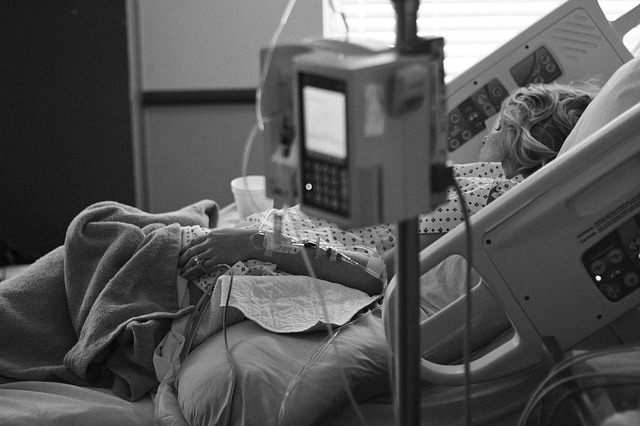Why Heat Strokes or Cold Strokes can be Deadly for Seniors?
If symptoms of a heat stroke aren't recognized by caregivers and treated immediately, it can have deadly consequences.
Extreme weather like heat and cold waves are challenging for senior citizens and their caregivers. They require extra care and attention, as the young and the elderly are particularly susceptible to heat strokes and cold strokes, i.e., hyperthermia and hypothermia. Both these conditions can be fatal in the elderly. For instance, one study has explored “the relationship between extreme hot weather and the increase in mortality, particularly from ischaemic heart disease (IHD) and cerebrovascular disease (stroke).” One needs to understand firstly how excessive heat and cold impact an elderly in order for better preparedness.
Interventions to reduce vulnerability to both hot and cold weather should target all elderly people. Specific interventions should also be developed for people in nursing and care homes as heat illness is easily preventable — Researchers at London School of Hygiene & Tropical Medicine, London, UK
Contents
Why are older adults more prone to heat stress?
As we age, the heat-regulating mechanisms of the body slow down as well. That’s why seniors are unable to adapt to sudden weather in comparison to young adults quickly and need additional care and assistance.
Research shows that “regional differences in sweat gland function exist between older and younger persons.” In addition, old age is also accompanied by a reduced flow of blood in the skin, difference in cardiac output, and lower blood flow redistribution to the organs. At times, a chronic condition or a combination of medications, such as diuretics, beta-blockers, tricyclic antidepressants, and aspirin, a particular lifestyle, and the overall health condition may make a senior more vulnerable to hot weather.
Typical symptoms of a heat stroke or hyperthermia are excessive sweating, flushing, headache, dizziness, cramps, exhaustion, dehydration and passing out. If symptoms of a heat stroke aren’t recognized by caregivers and treated immediately, it can have deadly consequences.
Why do old people stay cold all the time?
Most seniors are prone to feeling colder than the rest when the temperature drops. The reason is that when we age, our metabolism rate and blood circulation slows down, the skin becomes thinner. This means that the body is unable to generate and conserve the heat necessary to maintain a normal body temperature.
Besides aging, conditions like thyroid issues, heart diseases, and diabetes also bring about this issue and the medications used to address these conditions also lead to sluggish blood flow, excessive urination, and the inability of the body to conserve heat. Hence, additional help is required by the elderly in the form of warmer clothes and heating equipment. In hypothermia, the body temperature falls below the normal temperature of 98. Hypothermia can be fatal in seniors most of the times, so they require extra attention and care during moderate to highly cold weather.
How to Safeguard Senior Citizens Against Weather Havocs
Having some handy tips can help you know how to safeguard your elderly parents and patients against these problems:
- Poorly heated or cooled homes are one of the major reasons behind heat and cold strokes. Therefore, caregivers are required to make an extra effort to maintain a healthy temperature in the living areas of their elderly dependents.
- Hydration is critical during all weathers. Decreased feeling of thirst and urinary incontinence often causes dehydration. That’s why it’s critical to give water, electrolyte-rich liquids, smoothies, juices frequently to seniors in summers and warm beverages like soups, tea, coffee, drinking warm beverages during the harsh winters.
- The use of appropriate clothing is the key to weather management for the elderly. Poor mobility and dementia may make it harder for seniors to dress appropriately, so it’s always good to give them some advice or assistance. Items like a cap, gloves, socks, and blankets should be kept handy too. The layering of clothes is helpful in coping with sudden weather changes and can help a senior in your care put on or shed extra layers of clothing as per need.
Keeping seniors safe, healthy and comfortable is a serious responsibility, and a little vigilance goes a long way. If you suspect that an aging parent or a senior citizen in your care have had heat or cold stroke, seek immediate medical help instead of trying to treat the issue on your own.
References
- Kenney, W. Larry, and Thayne A. Munce. “Invited review: aging and human temperature regulation.”Journal of applied physiology 95, no. 6 (2003): 2598-2603. Retrieved from http://www.physiology.org/doi/full/10.1152/japplphysiol.00202.2003
- Chau, P. H., K. C. Chan, and Jean Woo. “Hot weather warning might help to reduce elderly mortality in Hong Kong.”International journal of biometeorology53, no. 5 (2009): 461. Retrieved fromhttps://link.springer.com/article/10.1007/s00484-009-0232-5
- Hajat, Shakoor, R. Sari Kovats, and Kate Lachowycz. “Heat-related and cold-related deaths in England and Wales: who is at risk?.”Occupational and environmental medicine 64, no. 2 (2007): 93-100. Retrieved fromhttp://oem.bmj.com/content/64/2/93

